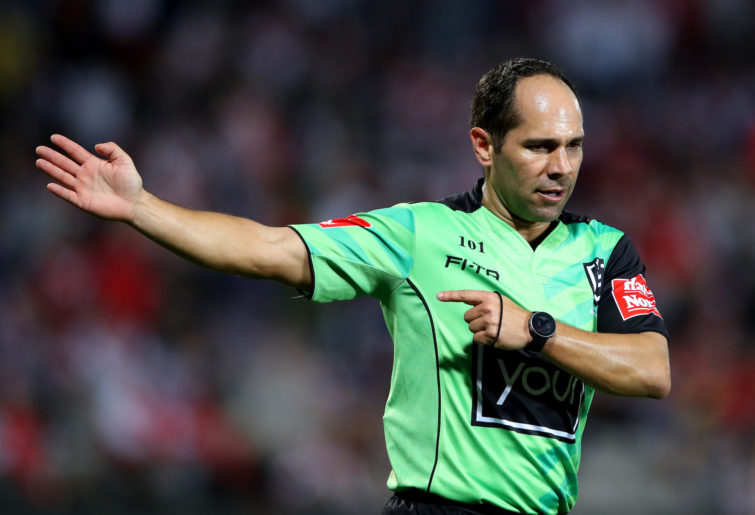NRL Round 7 Team Lists Late Mail: Souths lose star for three months, Bennett in doubt for Dolphins trip
South Sydney have the bye this week, but that hasn't stopped their bad luck with injuries. They have now lost starting front rower Tevita…
Opinion
Melbourne Storm’s clash against the Sydney Roosters will go down as one of the best for many a year.
It’s just a pity such a great game had to come down to the yawn that is golden point.
Doubtless Storm supporters and many neutral observers would not have cared the game was concluded by a penalty goal, but to them I ask how would you feel if your team after battling for over 80 minutes had the resulted decided in their opponent’s favour through a penalty goal?
Watching the Storm players celebrate certain victory after referee Ashley Klein awarded them a penalty right in front of the posts seemed like a flat note to end a fascinating contest.
Why couldn’t the game proceed for two lots of five minutes that are allotted?
Why end the game on a penalty goal?
Why couldn’t the opposition be given a chance to respond?
Supporters of golden point insist it is exciting.
To me, exciting implies unpredictability, which simply does occur with golden point.
Instead golden point produces the same old script as both teams play safety-first football working to get themselves in position for a field goal attempt.
Then there are the players who start feigning injury to gain an all-important penalty that could easily seal the result.
Golden point puts referees in a very difficult position because as we all know, it only takes one penalty or even a six to go call to hand one team an inevitable opportunity to kick a field goal and clinch victory.

(Photo by Mark Kolbe/Getty Images)
Teams take advantage of extra latitude often given from referees during golden point by often ignoring the rules altogether.
The genesis of golden point traces back to the 2002 State of Origin series.
In the third game with the series tied one-all, Queensland scored a try in the final minute to draw the match, resulting in the second tied Origin series in four years.
Queensland were awarded the Origin shield on count back due to having won the series the previous year.
Complaints immediately came from the NSW camp, who insisted there should have been another way to decide the drawn contest because they should not be forced to be bridesmaids due to the previous year’s result.
The very next year the NRL introduced golden point.
When Ben Hunt knocked the ball on from the kickoff during golden point in the 2015 grand final I was disappointed for him because I knew he and his team at the time, the Brisbane Broncos, would in all likelihood not be able to atone for his mistake.
The Broncos could not extend the game simply by preventing the Cowboys from scoring a try.
To win the game the Cowboys were only required to score by any means and thereby deny the Broncos another chance of possession.
The Cowboys claimed the premiership in the ensuing set through a Johnathan Thurston field goal.
Then Broncos coach at the time – Wayne Bennett – was criticised as being a sore loser for raising the issue of golden point straight after the game, but his observations were as valid then as they are now.
During 2019 in another memorable contest between the Storm and Roosters, the Tricolours won the game with a field goal during the golden point period without the Storm even touching the ball.

(Photo by Kelly Defina/Getty Images)
Is this really the best way to decide contests in the greatest game of all?
The National Football League (NFL) in the US recognised the inequity of the golden point concept.
Previously, the NFL’s overtime rules reflected those in the NRL home-and-away season with the game concluding as soon as first points are scored.
Acknowledging the inequity, the NFL changed their overtime rules with both teams now requiring at least one possession of the ball unless the team receiving the first possession in extra time scores a touchdown.
Even the NRL acknowledged the folly of the golden point system that decided the Storm-Roosters clash when in 2016 it changed how it works in finals matches.
In NRL finals matches, golden point does not, in fact, see matches conclude when first points are scored. Instead the game proceeds for two lots of five minutes regardless.
Therefore a team in golden point that concedes a field goal or a penalty, as the Roosters did against the Storm, would still be able to respond.
This adjustment in finals matches also takes pressure off referees knowing that a penalty or six-again call would not be the be all and end all in deciding a contest.
If the NRL insist on tied games continuing after 80 minutes in the home-and-away season, it should implement the same golden point rules it uses for finals.